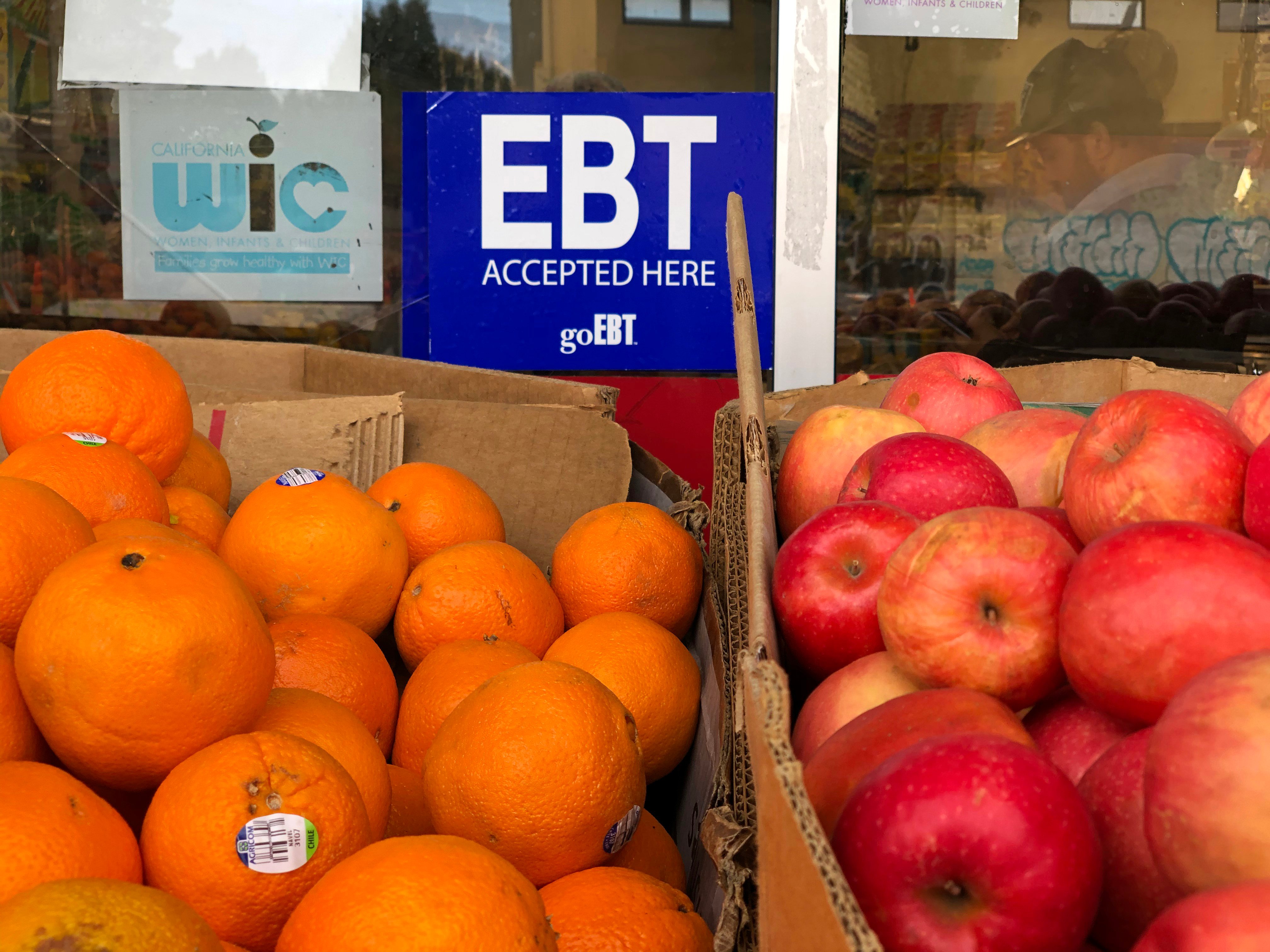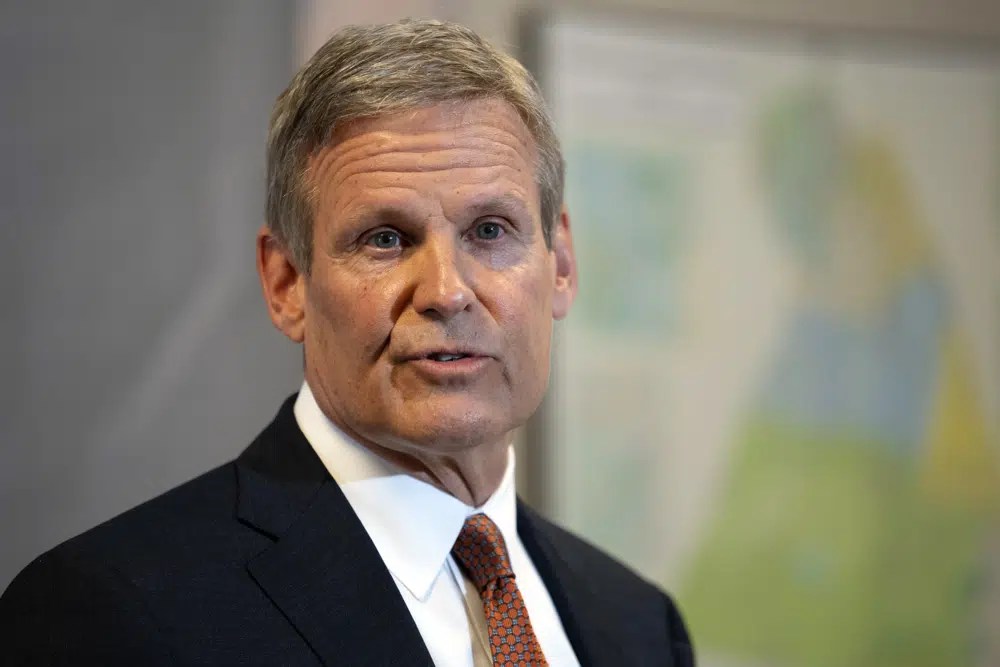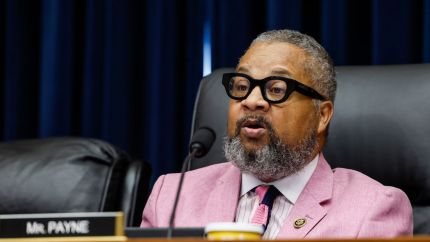14 GOP-led states have turned down federal money to feed low-income kids in the summer. Here’s why
Many states have rejected federal funds on principle or for technical reasons
Lower-income families with school-age kids can get help from the federal government paying for groceries this summer, unless they live in one of the 14 states that have said no to joining the program this year.
The reasons for the rejections, all from states with Republican governors, include philosophical objections to welfare programs, technical challenges due to aging computer systems and satisfaction with other summer nutrition programs reaching far fewer children.
The impact falls on people like Otibehia Allen, a single mom of five in Clarksdale, Mississippi, who makes too much to qualify for some public assistance programs. She could have received $480 in aid over three months this summer if her state participated.
“It would have helped us a whole lot, especially with the boys,” Allen said. “They’re growing children. They eat a lot.”

Many states have rejected federal funds on principle or for technical reasons. In 2021, 26 states cut short the enhanced unemployment benefits people received during the coronavirus pandemic. Twenty-two states have turned down the mostly federally funded expansion of Medicaid eligibility to provide health insurance to more lower-income adults. A dozen of those states have reconsidered and expanded Medicaid.
The Summer EBT program, a response to increased child hunger when school is out, involves much less money. The federal government launched pilot versions in 2011, expanded it nationally during the pandemic and then Congress made it permanent within a spending bill adopted in December 2022. States must split the administrative costs 50/50, and the federal government funds the benefits, which are expected to cost $2.5 billion this year and help feed 21 million children.
Another 10 million eligible kids live in states that turned down the funding.
For each of three summer months, families with children in free or reduced-price school lunch programs will get $40 per qualifying child on an electronic benefits transfer — or EBT — card. It can only cover groceries and food from farmers’ markets.

Family size determines the income limits. A family of three making under about $46,000 would qualify in most of the country.
States had until the end of 2023 to decide whether they would join this summer. They can enroll in future years even if they skip it in 2024. Vermont plans to do that after replacing a state computer system.
The spending measure provided some broad outlines a year earlier and the U.S. Department of Agriculture shared details with the states throughout 2023. But the interim final rules were not published until Dec. 29, timing that some states said proved problematic for deciding whether to join.
Recommended Stories
The Texas Health and Human Services Commission said late rulemaking factored into its opting out, along with needing lawmakers to approve funding for the state’s administrative cost share. Texas lawmakers aren’t scheduled to convene this year. Spokesperson Thomas Vazquez said via email that Texas would consider joining later.
It’s the other way around in Tennessee, which opted into the lunch program for 2024 but doesn’t plan to continue in 2025.
Like leaders in other states, Republican Gov. Bill Lee’s office said the initiative is a pandemic-era benefit and that other food programs already exist.
But Food Research and Action Center, an advocacy group targeting hunger, has found that the main federally funded summer nutrition program doesn’t reach most qualified children. During the summer of 2022, it fed only one of every nine children served by the free or reduced-price lunch program nationwide during the 2021-2022 school year.

Wyoming Superintendent of Public Instruction Megan Degenfelder said she turned down the Summer EBT card funds because she wanted to prioritize the current summer meals programs, which require minimal state funding.
“I generally prefer those meals getting directly to kids,” she told The Associated Press. “At the feeding sites, we know that’s happening.”
Still, she said the summer sites in her rural state need improvement. In 2022, they served about 9,400 summer lunches daily, which is only one-fifth of the daily average for free and reduced price lunches in the 2021-22 school year. Six of Wyoming’s 23 counties have no sites. And even though the federal government last year started letting families take home a week’s worth of meals for children, Wyoming sites offered only in-person meals.
Wyoming’s share of administrative costs this year would have been about $1.1 million, and about $690,000 annually in the future, Defenfelder said.
Republican governors currently lead all the rejecting states, but Louisiana had a Democrat with one week left in his term when the deadline hit.
In some places, the rejections have had a partisan edge.
In Mississippi, one of the states with the most food insecurity for children, some 324,000 children — including four of Allen’s — would have been eligible.
Republican Gov. Tate Reeves’ office declared it an unnecessary big government program, saying that if Washington, D.C. Democrats had their way, “Americans would still be locked down, subjected to COVID vaccine and mask mandates, and welfare rolls would’ve exploded.”
Allen, who works as a transportation dispatcher and scheduler, thinks Reeves’ priorities are misplaced. She pointed to the state’s implementation of an abortion ban in 2022.
“Why do you care so much about my uterus and how many babies I’m having or aborting?” Allen said. “Why is that a concern when I still have to feed this child, but you’re not helping me do that?”
The rejections have drawn backlash.
In Nebraska, Republican Gov. Jim Pillen sparked a firestorm of criticism when he justified rejecting the money by explaining, “I don’t believe in welfare.” But he reversed course on Monday and said the state would join the program after a Democratic lawmaker introduced a bill to require participation. He said he was swayed by hearing stories about hunger from high school students.

Lisa Davis, senior vice president of the No Kid Hungry Campaign for Share Our Strength, said she believes all the states can be persuaded to join in the coming years.
“Childhood hunger is one of the few issues that brings everyone together,” she said.
The remaining holdouts are Alabama, Alaska, Florida, Georgia, Idaho, Iowa, Louisiana, Mississippi, Oklahoma, South Carolina, South Dakota, Texas, Vermont and Wyoming.
Officials in Iowa’s two most populous counties are requesting the state-rejected funds anyway, though the program offers no pathway to fund local governments instead of states.
In Iowa’s rejection, Gov. Kim Reynolds said it was not a long-term solution.
“An EBT card does nothing to promote nutrition at a time when childhood obesity has become an epidemic,” the Republican said in a statement.
But Crystal FitzSimons, director of school programs at Food Research and Action Center, cited research that families buy more nutritional food when their grocery subsidies increase.
“It’s a missed opportunity when kids are going hungry,” she said.
Never miss a beat: Get our daily stories straight to your inbox with theGrio’s newsletter.








